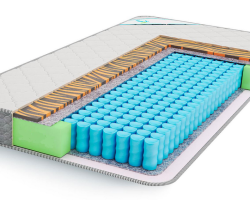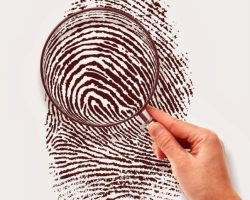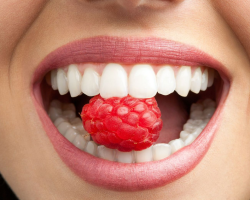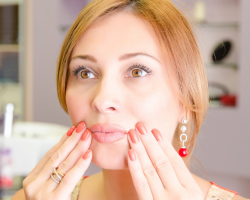All about the mediator norepinephrine. A substance that combines extreme sport, hypertension and depression.
Content
Adrenaline and norepinephrine are stress molecules. Any fear is associated with the release of norepinephrine. And these are not only extreme swims on kayaks along mountain rivers and parachute jumping, but also expectation of troubles, as well as fear of fear itself. For example, when you are afraid of public performance and begin to be afraid even more, because you understand that you are afraid.
The difference between adrenaline and norepinephrine
Norepinephrine mediator - affects mainly to brain function. And adrenaline is a hormone and it affects the work of internal organs. Both substances stand out in response to stress, both activate those organs that are most important in extreme situations. But adrenaline and norepinephrine act completely differently.
- Hormones, Including adrenaline, they work slowly. Their action lasts from several minutes to several hours.
- Mediators They act very quickly and briefly, norepinephrine - stands out in seconds and works the same.
Adrenaline and norepinephrine are produced in the adrenal glands. Norepinephrine is also produced in the brain. The zone where this happens is called blue spot.
Norepinephrine - why is extreme sport so addictive?
Because norepinephrine and stress are generally great. But there are several different "but":
- Stress should not be too long.
- It is desirable that we leave the situation by winners.
- The release of norepinephrine and stress should not be very powerful. Agree, shock is dangerous and not particularly useful.
Norepinephrine is closely connected with another important mediator working in the brain, dopamine. Dopamine is produced when we look forward to pleasure. Dopamine and norepinephrine molecules are generally similar. Moreover, norepinephrine is generally obtained from dopamine. That is, in a stressful situation, the mechanisms of the production of the "hormone of happiness" are launched.

Example: The girl is happy because she knows that she will be caught. If she had not been caught, then she would not have fun into the air.
Balance between norepinephrine and acetylcholine
Norepinephrine is an important mediator of the sympathetic nervous system. Sympathetic - This means exciting. In addition to sympathetic, there is also parasympathetic nervous system, which, on the contrary, is included at rest. More precisely, calm wakefulness, during sleep, both systems "rest". The main mediator of the parasympathetic nervous system is acetylcholine.
- Norepinephrine and acetylcholine are constantly competing with each other. Norepinephrine makes the heart beat faster, and acetylcholine, on the contrary, is slower.
- Norepinephrine increases blood pressure and narrows blood vessels, and acetylcholine, on the contrary.
- Norepinephrine slows down the work of the gastrointestinal tract, and acetylcholine activates it.
Norepinephrine - is all diseases from stress?
In the theories of psychosomatics, it is said that almost all diseases are caused by some psychological moments and mental experiences. Some authors of psychosomatics books associate even acne with her.
Opponents of this theory call psychosomatics pseudoscience and say that all this is frank quackery. In this part of the article, we have collected diseases and conditions, the connection of which has been proven with stress. What does norepinephrine have to do with it? Read this section, and we will try to explain this connection in each particular case.
Norepinephrine and hypertension
Vascular narrowing and increasing blood pressure is a direct result of the work of norepinephrine and adrenaline. Tachycardia, the word called a rapid heartbeat, also arises due to these substances.
It is believed that hypertension, especially the vegetative-vascular dystonia in the hypertensive type, is associated precisely with the increased production of norepinephrine.
Psychotherapists say that VSD is the problem of a psychological nature, and a vivid example of psychosomatics, when thoughts are reflected in the condition of the body. And they are right, psychotherapy and a decrease in anxiety help to cope with the VSD. The level of norepinephrine is really directly affected by emotions.

But some questions remain. For example, why does VSD most often develop in adolescents? There are several purely physiological reasons for this:
- Adolescents are intensively produced sex hormones. And one of the most important hormones testosterone. Testosterone - This is a hormone of aggression, it significantly increases both the level of dopamine and the level of adrenaline. After adolescence, the level of testosterone falls and stabilizes. Some will say that testosterone is a male hormone. But the girls also have it. Estrogen also increases the level of norepinephrine. But progesterone, a hormone of pregnancy, reduces it.
- Adolescents are often sharp a jump in growth. As a result, vascular deficiency occurs, when the body has grown, the growth increased greatly, and the vessels did not have time to develop to the desired level. Increased pressure occurs not only due to emissions of norepinephrine, but also because of weak blood vessels. Hypertension happens not only in adolescents, but also in pregnant women due to the increased load on the vessels, as well as in the older generation due to atherosclerosis.
Medicines that help cope with high pressure directly block norepinephrine. These are famous propranolol and atenolol. Another drug reducing norepinephrine is cloofeline. Clofelin - A medicine shrouded in criminal stories. The fact is that if you increase the recommended dose, then a person can fall out of life for several days. Now it is rarely prescribed and you can buy it only by recipe. It should be borne in mind that the listed drugs only relieve symptoms and do not treat hypertension. In combination with norepinephrine antagonists with hypertension, vasodilating drugs are usually prescribed.
Stress headaches
Stone pain appears when we are too tired. For example, you worked a lot, sat a lot at the computer, a lot of nervous. In all these cases, norepinephrine was developed, and your vessels narrowed. As a result, this led to spasm and pain appeared. Toltage headaches are usually not treated with antagonists (blockers) of norepinephrine. To get rid of them enough sleep or ordinary painkillers. The headache of tension is a situation familiar to everyone.
Strokes and heart attacks
The consequences of stress can be deadly. If you combine a strong ejecting norepinephrine and a weak heart or poor vessels, then a person can happen infarction or stroke. Prevention, recommended by doctors, usually consists in a conscious approach to their health, monitoring blood pressure and taking drugs that reduce pressure, if necessary.
But there are not quite ordinary methods of stroke prevention. There are no methods in the human body to consciously control its blood pressure. But it turns out that you can learn this. A person is planted in front of a monitor, on which a curve with his blood pressure is displayed. Then he is asked to find such a calm and relaxed state in which his pressure will be lower. It remains only to remember this state, what you did and what you thought about to achieve it. Perhaps this skill will save life in a stressful situation.
Instead of a special medical device, you can use a tonometer or even a fitness bracelet.

Norepinephrine and schizophrenia
It was previously believed that the culprit of schizophrenia is mediator Dopamine. Schizophrenia tablets really reduce the level of dopamine, blocking its receptors, and it works.
Not so long ago it has been proved that not only drugs blocking dopamine stops schizophrenia, but also the drugs blocking serotonin. They were invented for people suffering from Parkinson's disease. The fact is that with her the level of dopamine is reduced. And if a person has not only Parkinson's disease, but also psychosis, then you cannot use ordinary antipsychotic.
Norepinephrine - This is the third mediator, which is increased with psychosis. And there is no drug and control the mediator of norepinephrine through a hematoencephalic barrier that could not penetrate into the brain. But he may appear in the future.
Schizophrenia - This is Armageddon in the brain. The level of dopamine (mediator of happiness), serotonin (mediator of joy) and norepinephrine (stress mediator) is off the scale. And the structures that control them can no longer control them.
Patients with schizophrenia are in a special world where there are many pleasures (due to increased dopamine). But in their world there is also a lot of fear and anxiety. And the culprit of this mediator is norepinephrine.
Now about the causes of schizophrenia. It is known that in patients with schizophrenia suffers amygdala - Part of the brain, which just controls the level of dopamine and other mediators. This part of the brain in schizophrenics is deformed and reduced in volume. This is the cause or consequence of schizophrenia is not clarified. But, probably, this is a stick about the two -edges: on the one hand, schizophrenia is more ill with those who have genetically weak brain structures. On the other hand, strong emotional shocks can lead to “wear” tonsils that controls emotions.
There is a hypothesis that just an increase in norepinephrine mediator at a certain stage of life can lead to the development of schizophrenia. That is, you can go crazy with stress. Although, there are many other hypotheses of the development of schizophrenia, for example, glutamate.

It is amazing how different people can react to norepinephrine and stress:
- We all love living emotions and extreme. And the increase in norepinephrine in this case is joy.
- Norepinephrine mediator is a danger mediator. We often respond to stress with flight or aggression.
- Too high norepinephrine can cause pressure and tachycardia. There is a reset of emotions to the body.
- And finally, perhaps a strong stress that a person does not express to schizophrenia. It's like a silent cry that the brain physically does not stand.
Norepinephrine and depression
With depression, the level of dopamine, serotonin and norepinephrine decreases very much. Antidepressants at the molecular level intervene in this situation. Now antidepressants are often used that block the reverse capture of serotonin. And the level of "hormone of joy" is growing due to these chemical reactions.
Norepinephrine is closely connected with depression, because depression is, in fact, anxiety. Real depression is when you are worried, and sleep only a few hours a day. If you sleep all the time and do not want to do anything, then this is just despondency and laziness.
Depression and anxiety, even at the level of chemistry, are suppressed fear. That is, there is stress, but a person does not know that you can do it. The main thing is to remember that there are no hopeless situations. Even in the event of the death of loved ones, this can be opposed to life, yours and your children. If everyone around you is condemned, probably, neither you nor them can cope with the situation into which you have got into. But over time you can figure it out. And norepinephrine, which is now alarming, will turn into a struggle and a sense of happiness.
There are many other interesting articles about neurotransmitters on our site:
- All mediators of the central nervous system: dopamine, acetylcholine and others.
- Acetylcholine is a mediator of calm and balance.
- Medical drug Adrenaline.







